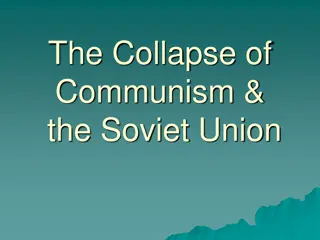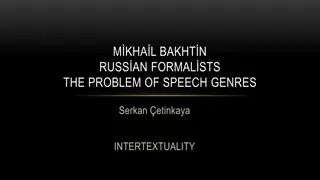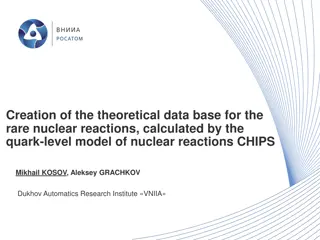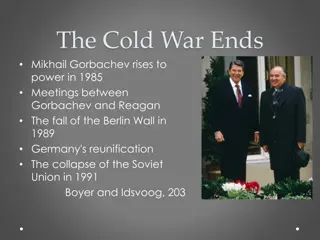The Collapse of Communism and the Soviet Union: A Historical Overview
The collapse of communism in the Soviet Union was influenced by factors such as a home-grown insurgency, the rise of the Polish trade union Solidarity, and the reforms initiated by Mikhail Gorbachev. Solidarity, led by Lech Walesa, played a significant role, supported by the Catholic Church. Gorbach
0 views • 15 slides
Russian Formalism: An Overview of Speech Genres and Intertextuality
Russian Formalism, a literary theory movement that emerged in the early 20th century, viewed literature as a distinct form of language. It was characterized by a shift from romantic and symbolist traditions towards a focus on structural analysis and the study of literary systems. Mikhail Bakhtin, a
0 views • 25 slides
Theoretical Data Base for Rare Nuclear Reactions Using Quark-Level Model
The creation of a theoretical data base for rare nuclear reactions using the CHIPS quark-level model is discussed in this research by Mikhail Kosov and Aleksey Grachkov from Dukhov Automatics Research Institute VNIIA. The study aims to predict cross-sections of unmeasured reactions, assess neutron-n
0 views • 18 slides
The End of the Cold War: A Reflection on Nuclear Menace in the 1990s
Mikhail Gorbachev's rise to power in 1985 marked the beginning of the end of the Cold War, leading to significant events such as the fall of the Berlin Wall in 1989 and the reunification of Germany. Despite the waning nuclear arms race, nuclear themes continued to dominate mass culture in the late 1
0 views • 13 slides



